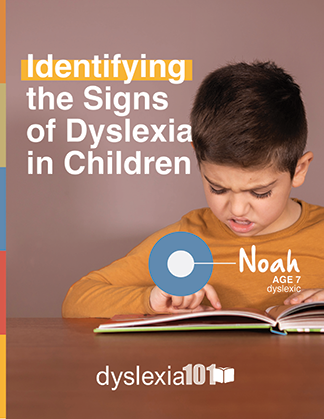- (833) 346-2533
- info@dyslexia101.com
- Mon. - Fri. 8 a.m. CT - 5 p.m. CT
Our online dyslexia assessment compares your child’s reading abilities to standard sampling data based on other children their age and gender. This is a unique sampling technique that our founder Dr. Hurford created.
Based on the data we collect during the online assessment, Dyslexia 101 can determine whether our dyslexia treatment and reading instruction program can help your child.
We like to call our approach “dyslexia remediation” instead of dyslexia treatment. Our national network of certified instructors understand dyslexia and are available virtually so your child can work with them, no matter where you live.
Using proven techniques and screen-sharing technology, our instructors address the gap between what children with dyslexia see on the page and how their brain processes it so they can create meaning while reading. Through specialized reading instruction, children with dyslexia not only learn how to read, but become more self confident.
While most people looking for solutions are searching for help for their children or grandchildren, learning to read the Dyslexia 101 way works for anyone at any age. People who have gone through life unable to read can learn to read with our program and open up a world of information. A 63-year-old non-reader became a competent reader using our dyslexia treatment and reading instruction program.
You can find programs to help your child learn to read despite dyslexia, but these programs can be prohibitively expensive and time-consuming. Dyslexia 101 is the only dyslexia treatment program that embraces a technology-focused solution that works especially well for busy parents.
For parents, the reading assessment is free. This evaluation is typically free for educators. Program tuition is $1,500 per month. Dyslexia 101 offers discounts with long-term agreements. Final program price will vary based on your child’s unique needs. We understand that this is a significant investment, but because we want to ensure all children have access to dyslexia treatment, we offer convenient financing options. Contact us to learn more. Ask us about our interest-free financing. Contact us to learn more. Ask us about our interest-free financing.
Dyslexia is a neurological difference that makes it very difficult to process and understand written words. In short, it is a type of learning disability that predominantly affects language. Dyslexia is not caused by problems with hearing or vision, nor is it associated with low intelligence.
In the early years, a child with dyslexia may learn new words more slowly than expected, reverse sounds in words, or confuse words that sound similar. Children with dyslexia may also have difficulty with rhyming games or learning nursery rhymes.
Once in school, dyslexic children read well below grade level, and may have difficulty finding the right words to answer questions. Remembering sequences, spelling, and sounding out words may be difficult for them.
Children who have not yet gotten a dyslexia diagnosis or undergone dyslexia treatment may begin avoiding activities that involve reading and begin struggling with word problems in math, as well as take inordinate amounts of time on tasks that require reading.
Most children begin learning to read between kindergarten and second grade. This is usually when parents, guardians, and educators notice children experiencing reading difficulties and may consider dyslexia as the cause. Some children with dyslexia may begin talking later than expected developmental milestones, which may indicate a future dyslexia diagnosis.
Dyslexia affects 1 in 5 children. Across the broader population, 33% of people are either poor readers or can’t read at all. Dyslexia is also likely genetic, meaning if you had trouble learning to read, your child may, too.
While you read, neurons fire in the parts of the brain used for reading. These are the same brain areas responsible for connecting print and sound. For people with dyslexia, those neurons do not respond during reading in the way those areas respond for good readers.
It is a myth that people with a dyslexia diagnosis see text backwards, they have holes in their vision, or that the text is blurry. People with dyslexia see the words, but can’t make the connection between letters and sounds. To learn to read, a person has to know that the letters represent sounds and must “decode” the letters into their sounds and blend them together to pronounce words. Difficulty in any part of this process results in reading failure.
Because reading is foundational to other learning activities like math, science, and history, dyslexia can absolutely affect your child’s success in other school subjects besides language arts or reading.
When a child in early grades falls behind the rest of their class, their self confidence can suffer, or they can be misdiagnosed with other learning disabilities. Dyslexia and reading issues may also trigger behavioral ones in school, too.
Yes! People with a dyslexia diagnosis can become competent readers. They just need to learn to read in a very different way. With the right approach, even children with severe dyslexia can learn to read.
Dyslexia is a neurological difficulty worldwide, but can be more problematic with the English language. The English writing system is challenging for beginning readers and extremely challenging for people with dyslexia.
In the English language, the same sound can be represented by several letters or combinations of letters. This is confusing when we begin to learn to read, but seems almost impossible for someone with a dyslexia diagnosis.
